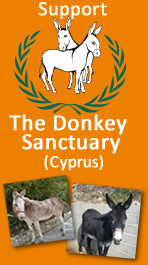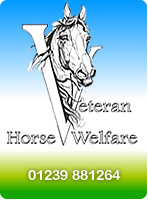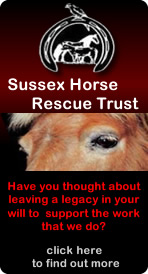
Horseytalk.net Special Interview
Remembrance Special
REMEMBERING ANIMALS IN WAR
Paula recalls her grand dad, his war service in Africa and the mules he worked with


My name is Paula and I've worked within the charity for over 8 years now and I love it. I've always been an animal lover and adore donkeys and mules. I'm always telling my family stories of what we're up to at the Sanctuary, and with the recent focus on 'animals at war', particularly the role of the mule, I was surprised to hear that my Grandad had his own story to tell.
Grandad, Norman Aldridge, is from Plymouth and in 1950 carried out National Service in Eritrea, East Africa. Now at the age of 85, he talks about his time out on patrol and the mules that accompanied them.
This is his story in his own words...
Once a month, our Company was split into four platoons of 20 men - A, B, C and D - and we'd take it in turns to go out on detachment from the main camp out into the wilds and search for the Shifta Bandits. I was in D Company. Out in the wilds, we'd be marching 30 miles a day. We'd stay out all night, there was nowhere else but to sleep under the stars.
Having to carry all the equipment we needed wasn't easy after marching such long distances - down on the plains, the temperature was so high it was almost unbearable. You'd have to take salt tablets as you'd sweat so much. The terrain was harsh and tough going.
To help carry the equipment, we had two pack mules, based at the main camp, who would go out on detachment with each platoon in turn. One of the mules would be responsible for carrying blankets and food, and the other would carry a radio and battery pack - you can just about see in one of the photographs a mule with the battery on one side of his saddle pack, and the radio on the other. This radio was our only means of communication to the main camp. The radio the mule carried was so big, we couldn't have managed it ourselves whilst marching. It was a Wireless Set No. 19 (WS19). I would carry two WS88 sets, which were smaller and could communicate with Auster aircraft.
We'd take it in turns to lead the mules, it was part of our duties, but I did enjoy walking with them. They were good as gold, and well looked after. They knew their job, and never put a foot wrong. They'd march with us, stop to eat with us, and sleep at camp with us. At main camp they had their own stables, but when out on detachment they'd bed down just like we had to, on ground sheets just out there in the wild!.


The whole platoon were responsible for feeding and watering them, we always made sure they were well looked after - not only were they important, but they were part of the team. When stopping for the night, we'd remove their saddles and head collars, but didn't need to tether them - they'd just roam free but would always be there in the morning. During the night we'd take turns to keep watch on the camp whilst everyone slept to make sure nothing was coming. You'd have an hour each, often soldiers wouldn't have a watch so whoever did would take it off, give it to the soldier whose turn it was, and pass it on each time the hour was up - although in the morning, when you'd get the watch back you'd find it was several hours fast!
You never got taught about the mules - you wouldn't learn how to lead or look after them, you got there and were told "he's yours, out you go"! You'd soon pick up the basics, and common sense told you how to look after them. I was fortunate that my Uncle had a farm in Kings Tamerton, Plymouth and kept Shire horses. He used them for pulling the cart, ploughing and working on the farm, and when I was a boy, my father would sit me on the horse whilst ploughing and go up and down all day long whilst he steered the plough. I was used to the horses, and would even lead them to Deacons Blacksmith for shoeing. I already had knowledge of horses and was aware of their needs and temperament, so wasn't fazed by the mules but some of the other soldiers had to get used to them.
The mules had been there a long time before we got there with other regiments, so were used to the job and having strangers lead them - they put up with us! They always worked hard, and we were all really glad to have them there to help us each day.




